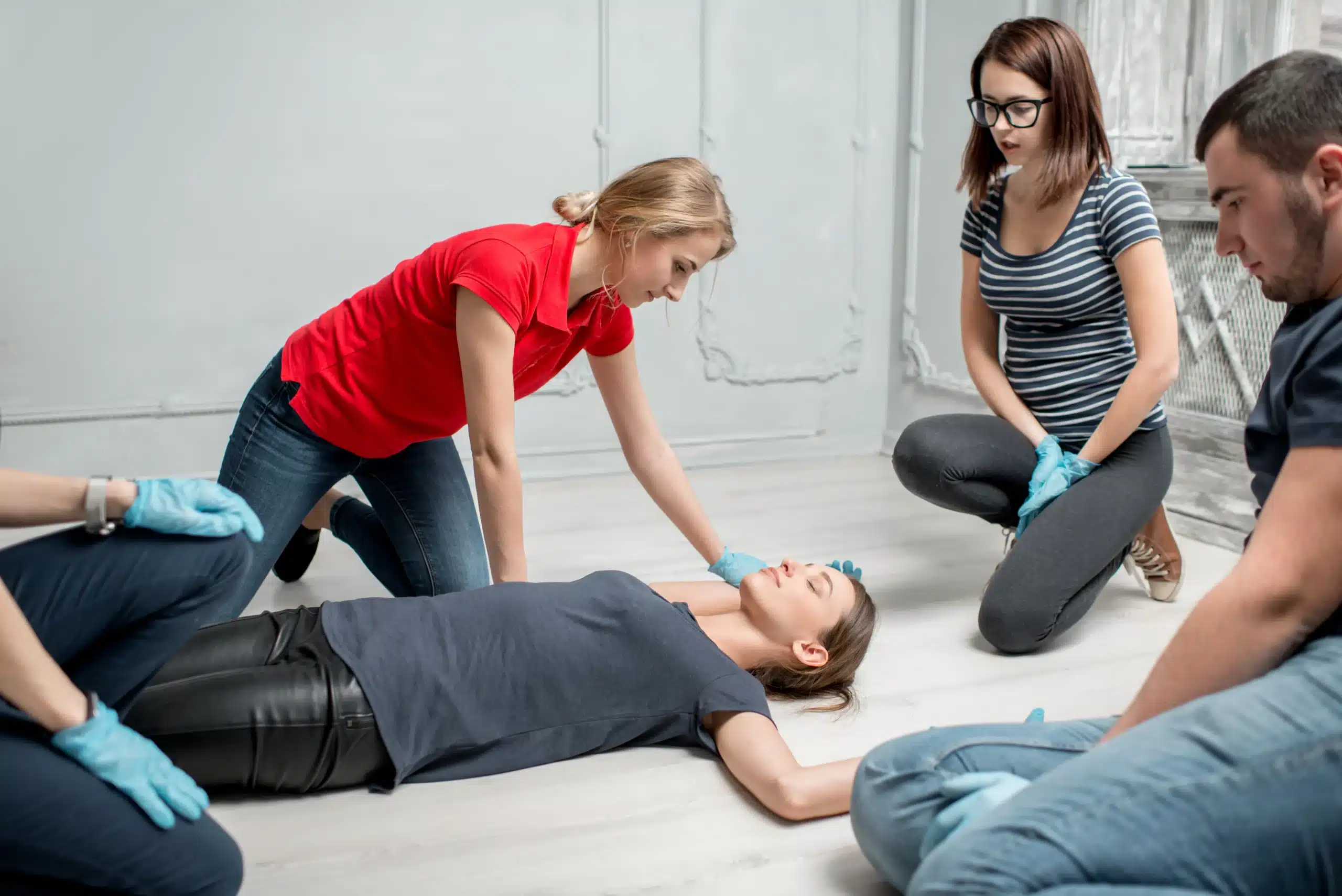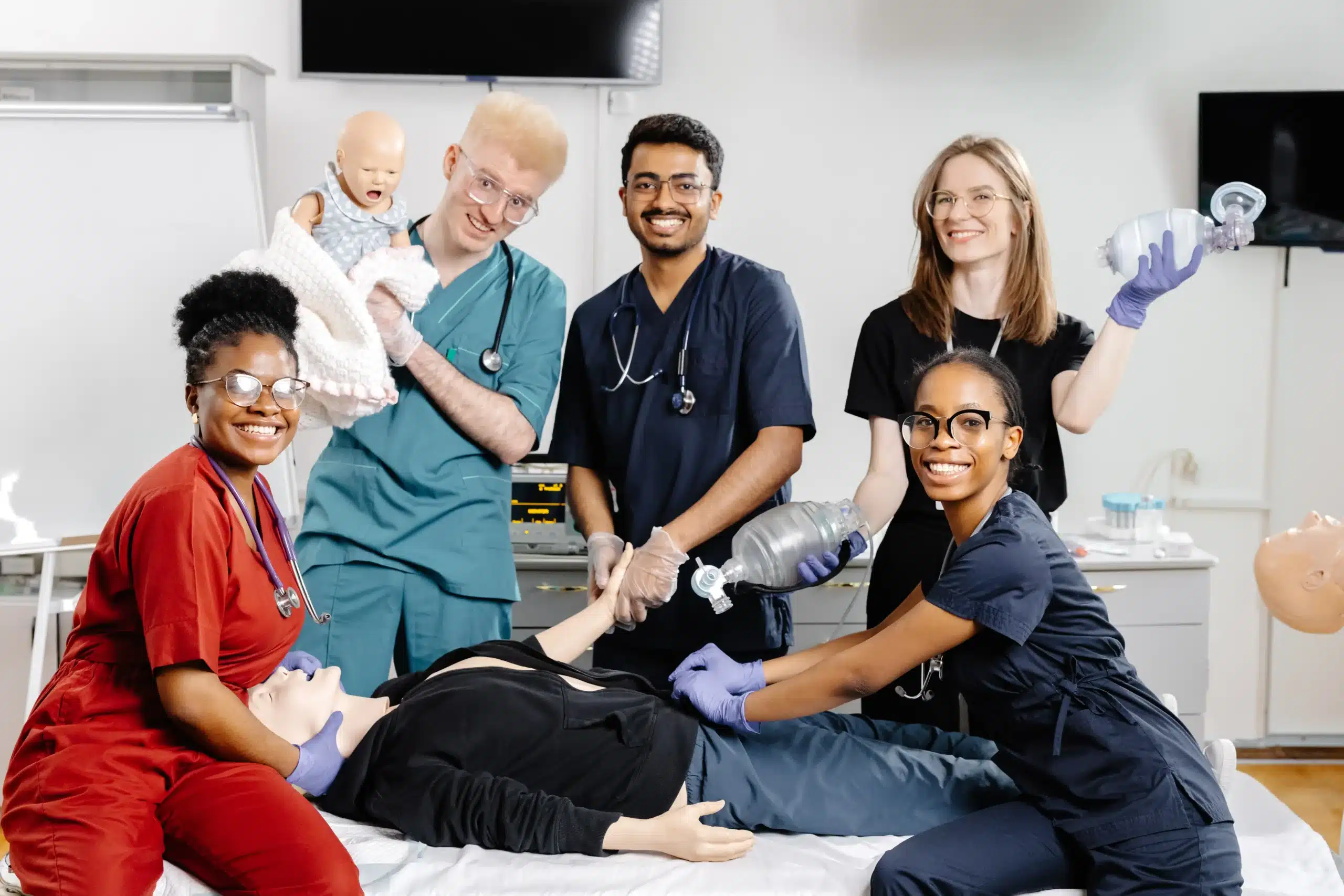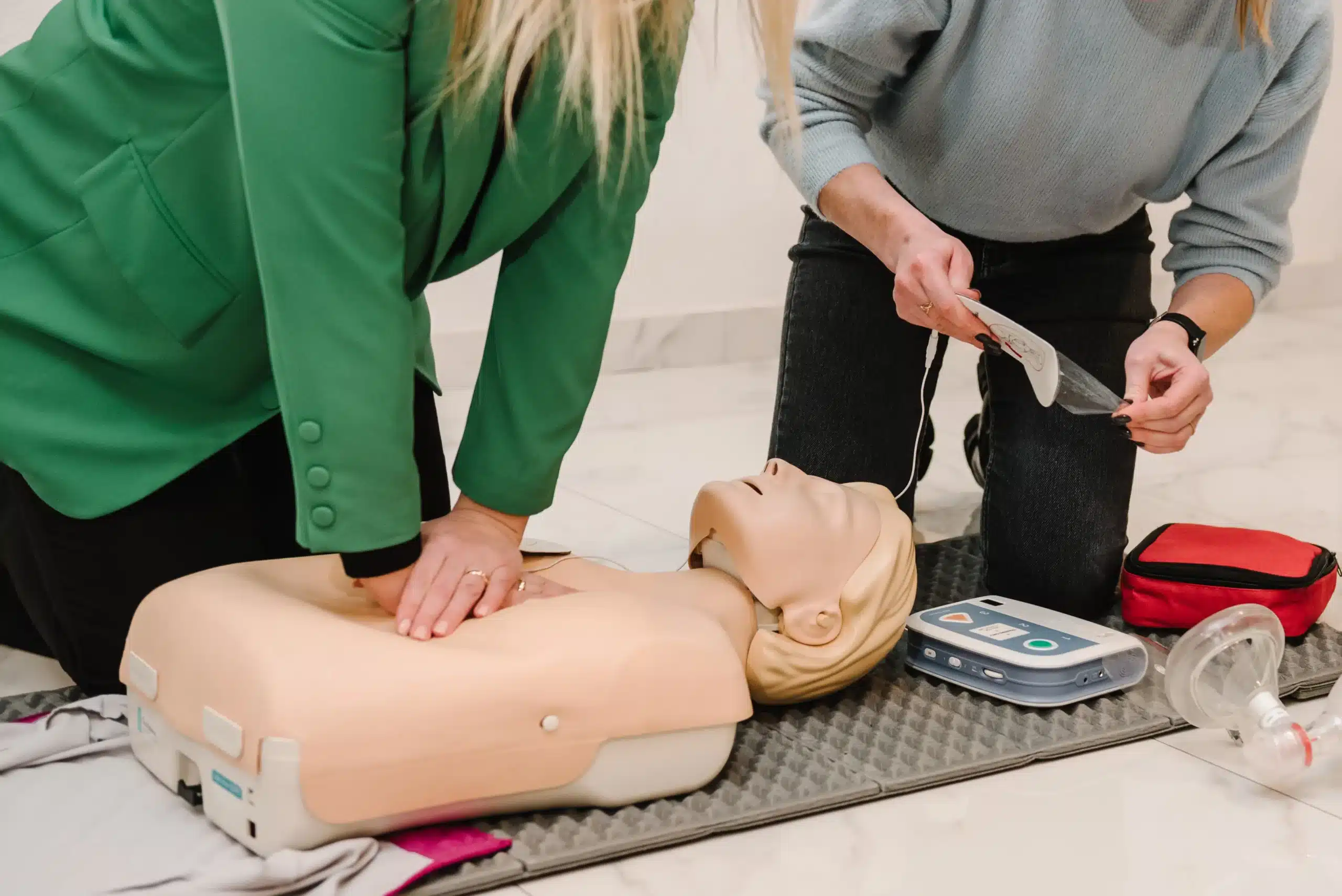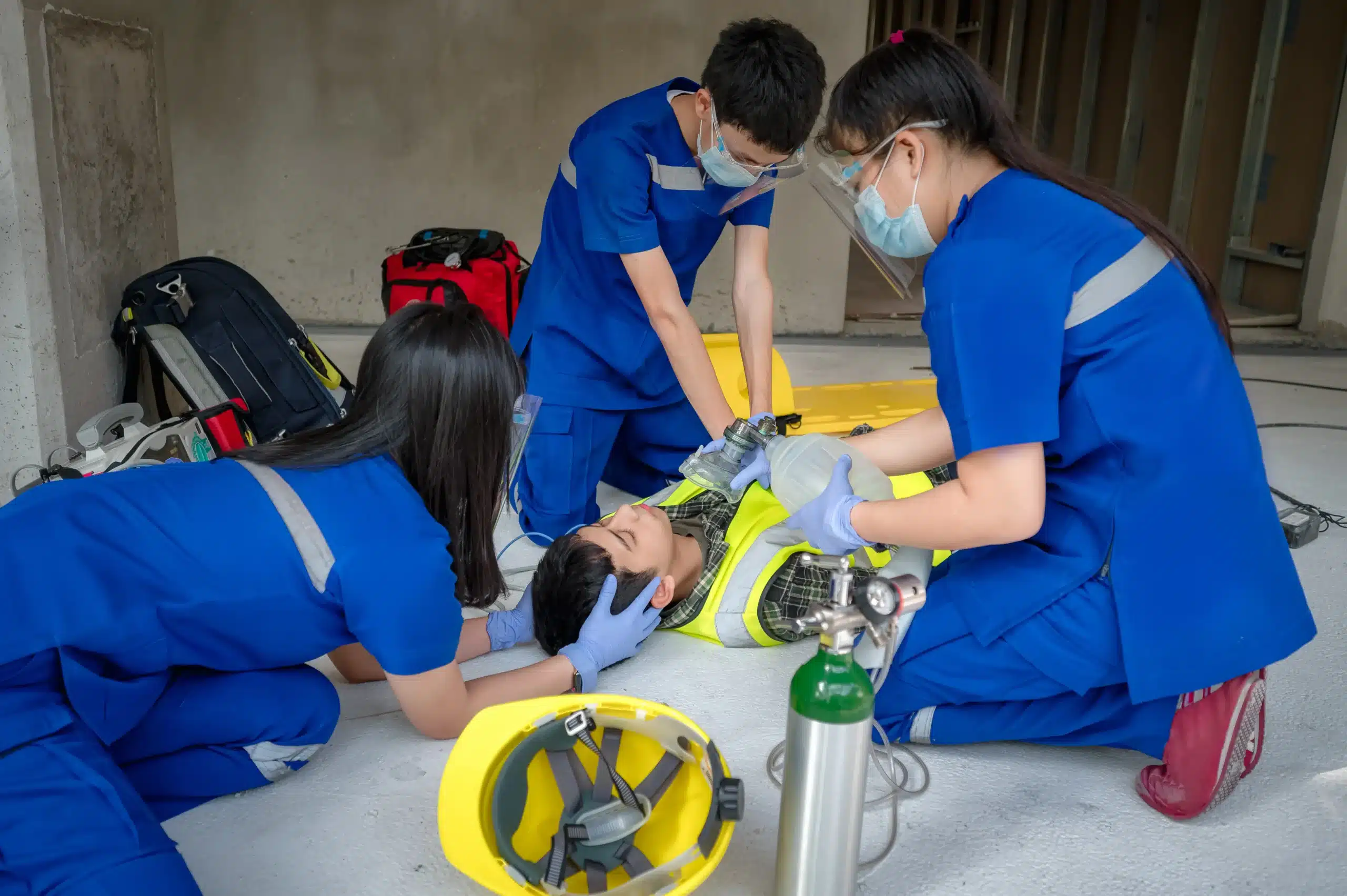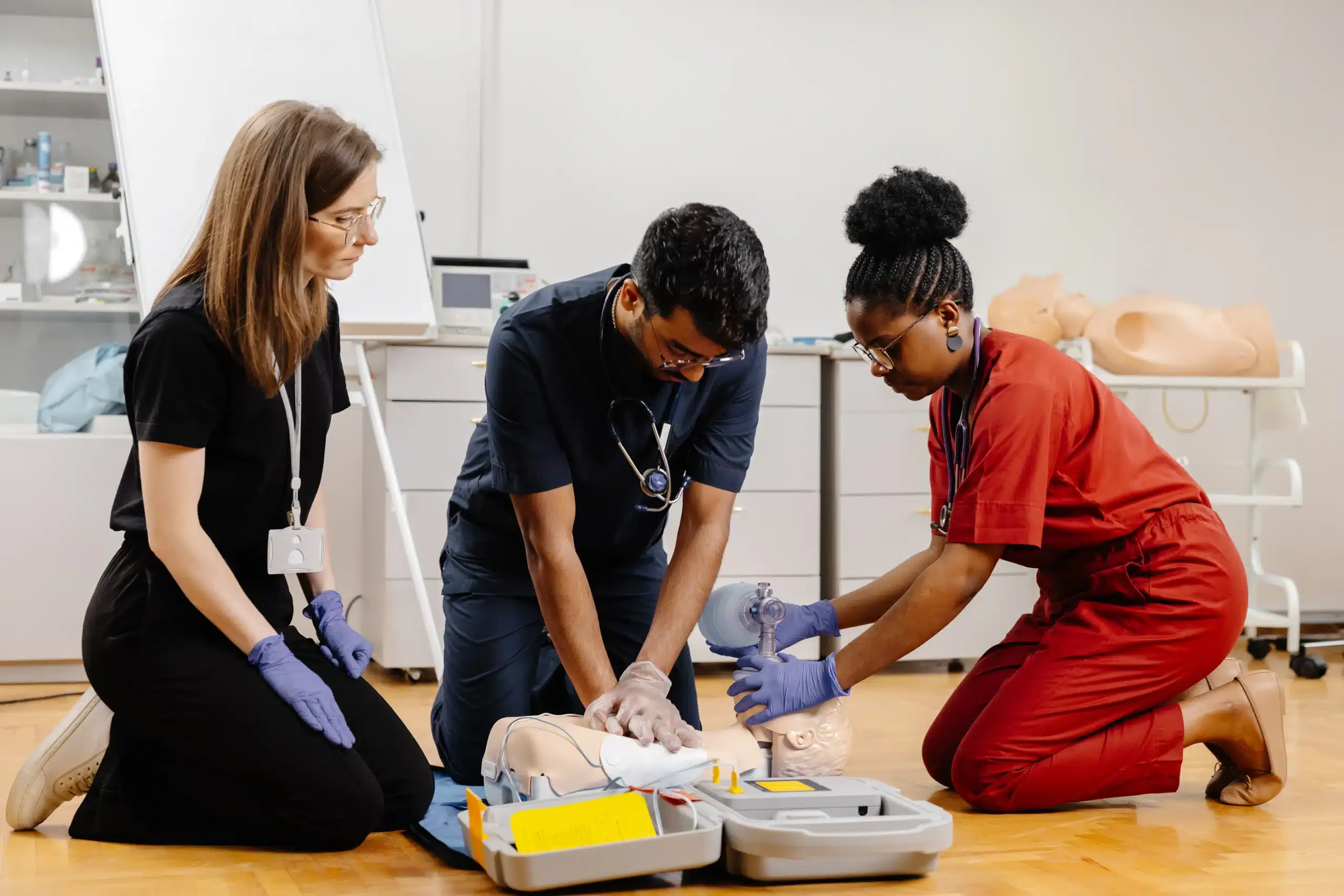In Concord, CPR training is more than just a certification; it’s a vital skill that empowers individuals to respond confidently during medical emergencies. This comprehensive guide explores the diverse CPR training landscape in Concord, catering to various needs and professional levels. Whether you’re a medical student seeking BLS certification, a healthcare provider aiming to enhance your skills with ACLS or PALS, or a concerned parent wanting to learn CPR and First Aid, this guide provides valuable insights. We’ll delve into course formats, costs, and the benefits of CPR training in Concord, helping you make informed decisions and become a valuable asset in your community.
Key Takeaways
- Find the right CPR course for your needs: From basic life support for everyday emergencies to advanced certifications for healthcare providers, CPR training offers a range of options. Select a course that aligns with your goals and experience level.
- Choose a quality CPR training provider: Look for accreditation, experienced instructors, small class sizes, and ample hands-on practice. A supportive learning environment and flexible scheduling can make a big difference in your learning experience.
- Maintain your CPR skills after certification: Regular practice and continuing education are key to staying prepared. Explore refresher courses and programs like RQI to keep your skills sharp and your certification current.
What is CPR Training?
CPR training equips you with life-saving skills to respond to medical emergencies. Different courses cater to various needs and professional levels, from basic life support to specialized pediatric care. Let’s explore some key CPR training options:
BLS (Basic Life Support)
BLS provides the foundational skills to perform CPR and other essential techniques in emergencies. It covers core procedures like chest compressions, rescue breaths, and using an AED. This BLS certification is crucial for anyone entering a healthcare field and offers a solid base for more advanced training. Safety Training Seminars offers BLS certification, empowering individuals to respond confidently during critical moments.
ACLS (Advanced Cardiac Life Support)
ACLS builds upon BLS, focusing on advanced life support techniques for healthcare professionals. It delves into complex algorithms for managing cardiac arrest, stroke, and other cardiovascular emergencies. This training is essential for doctors, nurses, paramedics, and other medical personnel who direct or participate in resuscitation efforts.
PALS (Pediatric Advanced Life Support)
PALS addresses the specific needs of infants and children facing medical crises. This course teaches healthcare providers how to recognize and manage respiratory distress, shock, and other pediatric emergencies. PALS certification is vital for anyone working in pediatrics, emergency medicine, or intensive care units.
CPR and First Aid
Combined CPR and First Aid training provides a well-rounded skill set for responding to various emergencies. You’ll learn how to perform CPR, control bleeding, manage fractures, and handle other common injuries. This certification is valuable for anyone, from parents and teachers to workplace safety officers and community volunteers.
NRP (Neonatal Resuscitation Program)
NRP focuses on the specialized resuscitation techniques required for newborns. This training is essential for healthcare professionals working in labor and delivery, neonatal intensive care, and other areas where they might assist with newborn resuscitation. Safety Training Seminars offers NRP training, ensuring healthcare providers have the skills to support newborns during critical moments.
California Childcare Provider Course
This specialized course addresses the health and safety needs of children in childcare settings. The California Childcare Provider course covers topics like preventing injuries, managing illnesses, and creating a safe environment. It’s a valuable resource for childcare providers, preschool teachers, and anyone responsible for the well-being of young children.
Find Top CPR Training Providers in Concord
Finding the right CPR training provider is crucial for receiving quality instruction and obtaining a valid certification. Here’s a look at some options available in Concord:
Safety Training Seminars
Safety Training Seminars offers a range of American Heart Association (AHA) courses, including CPR, BLS, ACLS, PALS, and First Aid. They provide official AHA certification cards upon completion, valid for two years. Their courses cover essential life-saving skills and techniques, preparing you to respond effectively in emergencies. For convenient and comprehensive training, Safety Training Seminars offers various schedules and locations. You can explore their PALS certification course for more information. They also offer other specialized courses like the NRP certification and the EMSA Child Care Health and Safety program. For those looking to train a group, they offer discount group CPR classes.
CPR Training Center
CPR Training Center of Concord focuses on providing AHA-certified courses such as ACLS, CPR, and PALS. Serving Concord and the surrounding Contra Costa County, they offer convenient training options for individuals and groups. Their AHA-certified training center ensures that participants receive high-quality instruction and recognized certification. Whether you’re a healthcare professional or seeking personal certification, CPR Training Center offers courses tailored to various needs.
Concord CPR Authorized Training Center
This authorized training center specializes in onsite group and corporate training, providing CPR, First Aid, ACLS, PALS, and NRP certification. Their focus on onsite training allows organizations to conveniently train their employees in a familiar setting. This approach can be particularly beneficial for businesses looking to enhance workplace safety and preparedness. For additional training resources, consult the Northern CA CPR directory.
AHA Certified Centers
AHA Certified Centers offer standardized training programs that adhere to the latest AHA guidelines. These centers provide a consistent learning experience and ensure that participants receive up-to-date information and techniques. Look for AHA Certified Centers in Concord to access reputable and reliable CPR training.
Red Cross Training Centers
The American Red Cross also offers CPR training courses in various locations. While this article doesn’t specifically mention Red Cross Training Centers in Concord, they can be a valuable resource for individuals seeking alternative certification options. Check the Red Cross website or contact their local chapter for information on available courses and schedules in your area.
Explore CPR Training Costs in Concord
CPR training is an investment in your skills and the well-being of your community. Understanding what influences CPR course fees can help you find a program that fits your budget and learning goals. Let’s break down CPR training costs in Concord.
Average Course Prices
CPR course fees in Concord, much like elsewhere, vary. Basic CPR certification typically ranges from $50 to $150. More advanced certifications, such as ACLS or those including comprehensive first aid training, can cost $200 or more. Remember that these are general estimates, and actual prices may differ depending on the training provider.
Factors Affecting Price
Several factors contribute to the final cost of a CPR course. The course length plays a role, as longer courses covering more material often have higher fees. The level of certification you pursue—basic CPR, PALS, or another specialized certification—also influences the price. The institution providing the training, whether a national organization or a local provider like Safety Training Seminars, can also affect cost. Finally, any additional certifications included in the course package, such as First Aid, can impact the overall price.
Group Discounts
If you’re training with a group, explore group discounts. Many CPR training providers offer reduced rates for group classes. This can be a great option for workplaces, community groups, or families learning together.
Compare Costs and Benefits
When comparing CPR courses, consider the value you receive. A lower price doesn’t always mean a better deal. Think about the course duration, the reputation of the training institution, the level of certification offered, and any additional features included. Look for a course that balances affordability with a comprehensive curriculum and hands-on practice, ensuring you gain the confidence and skills to respond effectively in an emergency. A well-rounded course sets you up for success, whether you need CPR for personal preparedness or professional requirements.
Discover Course Formats and Duration
Finding the right CPR course often depends on your learning style and schedule. Thankfully, there are several options available, from traditional in-person classes to blended learning formats. Let’s explore the different CPR course formats and how long they typically take.
In-Person Training
In-person training remains a popular choice, offering a hands-on learning experience and direct interaction with instructors. This format allows for immediate feedback and personalized guidance, ideal for those who thrive in a structured classroom setting. Safety Training Seminars offers in-person CPR classes in Concord covering various certifications, including CPR, BLS, ACLS, PALS, NRP, EMSA, and First Aid.
Online and Blended Learning
If you need more flexibility, a blended learning approach might be a good fit. This format combines online coursework with a shorter, in-person skills session. You can work through the online modules at your own pace, then attend a hands-on session to practice and complete your certification. This hybrid approach offers the convenience of online learning with the essential practical application of in-person training. Blended learning is a great option for those with busy schedules or who prefer self-directed learning. For more information on blended learning, check out this helpful resource.
Typical Course Lengths
Course duration varies depending on the specific certification. Safety Training Seminars offers various AHA courses, including CPR and First Aid, designed to accommodate busy schedules with options available seven days a week. Contact your chosen provider for specific course lengths and schedules.
Flexible Scheduling
One of the advantages of choosing Safety Training Seminars is their commitment to flexible scheduling. They offer training options to fit your needs and can even come to your workplace to conduct BLS, CPR, and First Aid training, making group certifications easier. This on-site option simplifies training logistics and minimizes workday disruption.
Select the Right CPR Training
Choosing the right CPR training is crucial for effective learning and a valid certification. Consider these key factors:
Accreditation and Certification
Ensure the training center and instructors have accreditation from a recognized organization like the American Heart Association (AHA). Safety Training Seminars offers AHA-accredited courses in Concord, including CPR, BLS, ACLS, PALS, and First Aid, resulting in an official AHA certification card, valid for two years. This accreditation ensures the training meets established standards and provides a widely accepted certification. For those interested in pediatric care, we also offer the American Academy of Pediatrics NRP certification.
Instructor Qualifications
Look for training centers with experienced, qualified instructors who are healthcare providers actively working in the field. Their practical experience enriches the learning process with valuable real-world insights.
Class Size and Practice
Consider class size and opportunities for hands-on practice. Smaller classes often allow for more personalized instruction and increased practice time on mannequins. Adequate practice is essential for mastering CPR techniques. Our EMSA Child Care Health & Safety course is designed to meet specific needs with focused training.
Schedule Flexibility
Check for flexible scheduling to accommodate your busy lifestyle. Many training centers offer weekend and evening classes, and some provide online or blended learning. Safety Training Seminars offers various AHA courses seven days a week in San Francisco and surrounding areas. This flexibility makes it easier to fit training into your schedule.
Low-Stress Learning
A positive and supportive learning environment is essential. Choose a training center that emphasizes a low-stress atmosphere where you feel comfortable asking questions and practicing. This approach improves your learning experience and information retention. For a comprehensive list of CPR training options, see our Northern California CPR directory.
Learn CPR Benefits for Concord Residents
Knowing CPR can be a game-changer, and not just for healthcare professionals. It empowers everyday people to make a real difference in their community. Here’s why learning CPR is a smart move for Concord residents:
Personal Preparedness
Emergencies can happen anytime, anywhere. Equipping yourself with CPR and First Aid skills through a certification class gives you the confidence to respond effectively. You’ll learn to assess a situation, perform chest compressions, and provide basic life support until professional help arrives. This can significantly increase the chances of survival and minimize further injury for a loved one, a stranger, or even yourself. Think of it as a crucial life skill that could make all the difference.
Professional Growth
For many professions in Concord, CPR certification is a job requirement or a significant advantage. Fields like healthcare, education, childcare, and even fitness often seek candidates with these credentials. While there’s a cost associated with CPR training, consider it an investment in your career. Earning this certification can create opportunities and demonstrate your commitment to safety and preparedness. Plus, knowing you have these skills can boost your confidence at work.
Community Safety
Cardiac arrest can happen suddenly, and the first few minutes are critical. Learning CPR allows you to become a vital link in the chain of survival within your community. Effective bystander CPR has been shown to dramatically improve survival rates. By getting certified, you’re not just learning a skill; you’re becoming a potential lifesaver in Concord.
Immediate Certification
One of the best parts about CPR training is the quick turnaround for certification. Many providers, including Safety Training Seminars, offer immediate certification upon successful completion of the course and skills testing. You’ll receive an official American Heart Association eCard, valid for two years, right away. This allows you to use your new skills and confidently list your certification without delay.
Maintain Your CPR Certification
Keeping your CPR skills sharp is crucial for responding effectively in emergencies. This section covers how to maintain your certification and ensure you’re always prepared.
Renewal Requirements
CPR certifications, like those offered by the American Heart Association, are typically valid for two years. After completing a CPR course, you’ll receive an official certification card. Remember to mark your calendar and plan for recertification before it expires. Staying current ensures you’re always ready to provide assistance. Check with your certifying organization or employer for specific renewal guidelines.
Continuing Education
Beyond formal recertification, ongoing practice and education are key to maintaining high-quality CPR skills. Regularly reviewing guidelines and techniques helps reinforce best practices. Consider refresher courses or workshops to stay updated on any changes in protocols. Discussions about CPR training standards emphasize maintaining proficiency and retaining skills over time. This commitment to continuous improvement ensures you can deliver effective CPR when it matters most.
RQI Program
The Resuscitation Quality Improvement (RQI) program offers a practical approach to maintaining CPR competence. This program uses simulation stations with real-time feedback, allowing for frequent practice and skill refinement. Studies have shown the effectiveness of the RQI program in helping healthcare providers maintain their CPR skills, significantly improving compression and ventilation techniques through brief, regular practice. This consistent reinforcement builds confidence and ensures you can perform CPR effectively in real-world situations.
Get Participant Feedback
Before committing to a CPR class, it’s smart to see what other students are saying. Look for CPR training providers in Concord who prioritize feedback and continuous improvement. Here’s what to consider when evaluating participant experiences:
Quality of Instruction
High-quality CPR instruction is crucial for effective learning. A study published in the AHA Journals emphasizes how important objective skill measurement is in CPR courses. Seek out programs known for knowledgeable instructors who give clear demonstrations and personalized guidance. Check reviews and testimonials for comments about instructor expertise and teaching style. This gives you a better sense of the program’s commitment to effective instruction.
Comprehensive Curriculum
A comprehensive curriculum ensures you gain a well-rounded understanding of CPR principles and techniques. Concord CPR classes often highlight the importance of a curriculum that covers various emergency situations. Look for courses that include training in adult, child, and infant CPR, as well as instruction on using an AED and providing first aid for common injuries. This will prepare you for a wider range of emergencies.
Practical Skills
Hands-on practice is essential for developing CPR proficiency. Safety Training Seminars emphasizes the importance of practical skills development in their certification courses. Ask about the ratio of students to mannequins to ensure ample opportunity for realistic practice. Inquire about scenarios and simulations used during training to confirm the program’s focus on practical application. The more realistic the training, the better prepared you’ll be.
Real-Time Feedback
Modern CPR training often incorporates technology for real-time feedback. An article in PMC discusses how feedback devices can improve CPR performance and skill retention. See if the program you’re considering uses these tools. Real-time feedback helps you refine your technique and build confidence during practice sessions.
Regular Skills Maintenance
Maintaining CPR skills requires ongoing practice. A study featured in ScienceDirect showed the effectiveness of regular, brief practice sessions for skill retention. Look into programs like the RQI program, which offers refresher courses and ongoing support to help you stay sharp and ready to respond in an emergency. This demonstrates a commitment to long-term skill development, not just initial certification.
Start CPR Training in Concord
Assess Your Needs
Before jumping into a CPR class, take a moment to consider what you need. Are you required to have CPR certification for your job, or are you learning it for personal reasons? Do you need a general CPR and First Aid course, or more specialized training like PALS for pediatric care or ACLS for advanced cardiac life support? Knowing your needs will help you choose the right course. Also, think about how you learn best. Do you prefer hands-on, in-person instruction, or would you rather have the flexibility of online learning? Finally, think about your budget. CPR certification costs vary, so understanding what you can comfortably spend will help you narrow down your options.
Research Local Options
Concord has several providers offering various CPR training programs. Safety Training Seminars, for example, offers a range of American Heart Association (AHA) certified courses, including CPR, BLS, ACLS, PALS, First Aid, and the EMSA Child Care Health & Safety certification. It’s always a good idea to check multiple providers, compare what they offer, and read reviews before making a decision. Look for classes that fit your schedule and are conveniently located. If you’re learning with friends or colleagues, ask about group discounts. The Northern CA CPR Directory can be a helpful resource for a broader search.
Enroll in a Course
Once you’ve found the right course, enrolling is usually straightforward. Many providers offer online registration, making it easy to choose a date and time that works for you. Check the provider’s website or contact them directly to understand their registration process. They can answer any questions and guide you through the steps. Don’t hesitate to ask about what to expect on the day of the course, any required materials, and what’s involved in getting your certification. With a little research and preparation, you’ll be ready to gain this valuable life skill.
Related Articles
- BLS Certification in Antioch: Your Complete Guide – Brentwood CPR Classes
- BLS ACLS PALS Training: Your Ultimate Guide – Brentwood CPR Classes
- AHA PALS Classes in Brentwood, CA – Brentwood CPR Classes
- The Critical Role of CPR and First-Aid Training in the Workplace
- NRP Certification Concord: Your Guide to Neonatal Resuscitation – Brentwood CPR Classes
Frequently Asked Questions
What’s the difference between CPR and First Aid? CPR focuses on restoring breathing and circulation in someone who has stopped breathing or has no pulse. First Aid covers a broader range of injuries and illnesses, from cuts and burns to allergic reactions and heatstroke. Often, they’re taught together, giving you a well-rounded set of skills to handle various emergencies.
How do I choose the right CPR class for me? Think about why you’re taking the class. Is it for your job, personal knowledge, or both? This helps determine the right level of certification. Also, consider your learning style (in-person vs. online), schedule, and budget. Don’t hesitate to contact different training providers and ask questions to find the best fit.
How long does CPR certification last, and how do I renew it? CPR certifications are typically valid for two years. You’ll need to retake the course to renew. Check with your certifying organization or training provider for specific renewal requirements and options. Staying current with your certification is essential for ensuring your skills are up-to-date.
What if I’m nervous about performing CPR in a real emergency? It’s normal to feel a little apprehensive, but remember, any attempt at CPR is better than none. High-quality training will build your confidence and prepare you to respond effectively. Focus on what you’ve learned, and trust your training. You’re learning a valuable skill that could save a life.
What does CPR training typically cost? Costs vary depending on the type of certification, the training provider, and your location. Basic CPR courses are generally more affordable than advanced certifications like ACLS or PALS. Look for providers who offer group discounts or payment plans if cost is a concern. Remember, CPR training is an investment in your skills and the well-being of your community.


